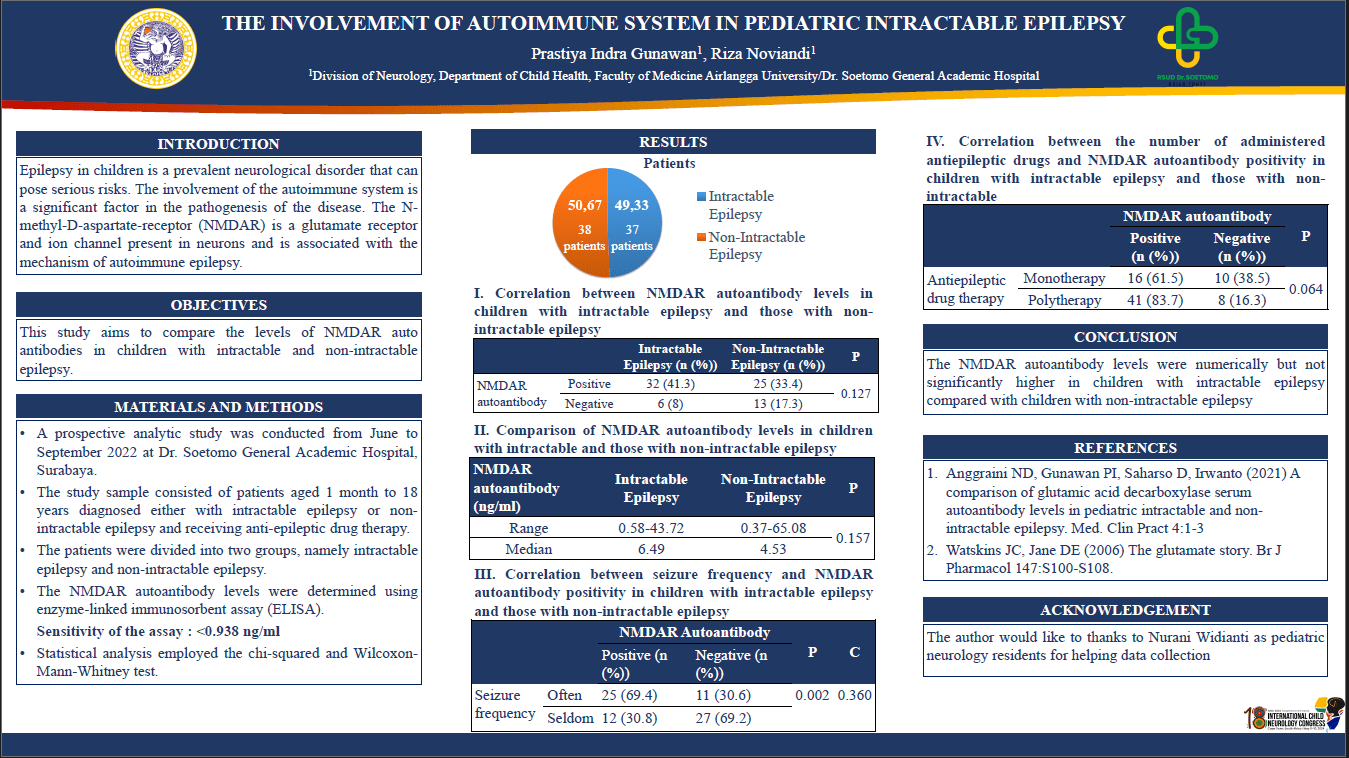The Involvement Of Autoimmune System In Pediatric Intractable Epilepsy
Objective: Epilepsy in children is a prevalent neurological disorder that can pose serious risks. The involvement of the autoimmune system is a significant factor in the pathogenesis of the disease. The N-methyl-D-aspartate-receptor (NMDAR) is a glutamate receptor and ion channel present in neurons and is associated with the mechanism of autoimmune epilepsy. This study aims to compare the levels of NMDAR auto antibodies in children with intractable and non-intractable epilepsy. Methods: A prospective analytic study was conducted from June to September 2022. The study sample consisted of patients aged 1 month to 18 years diagnosed with epilepsy and receiving anti-epileptic drug therapy at Dr. Soetomo General Academic Hospital, Surabaya. The patients were divided into two groups, namely intractable epilepsy and non-intractable epilepsy. The NMDAR autoantibody levels were determined using enzyme-linked immunosorbent assay (ELISA). Statistical analysis employed the chi-squared and Wilcoxon–Mann–Whitney tests. Results: Seventy-five subjects were included in the study. Of these patients, 41.3% with intractable epilepsy and 33.4% with non-intractable epilepsy presented NMDAR auto antibodies. Analysis of the patient characteristics revealed a correlation between seizure frequency and NMDAR autoantibody positivity (P = 0.004) but not between the number of antiepileptic drugs and NMDAR autoantibody positivity (P < 0.005). The NMDAR autoantibody levels were not significantly different in children with intractable and non-intractable epilepsy (P = 0.157). Conclusion: The NMDAR autoantibody levels were numerically but not significantly higher in children with intractable epilepsy compared with children with non-intractable epilepsy.
Prastiya Indra Gunawan
Indonesian Pediatric Neurology Association
Indonesia
Riza Noviandi
Indonesian Pediatric Neurology Association
Indonesia
